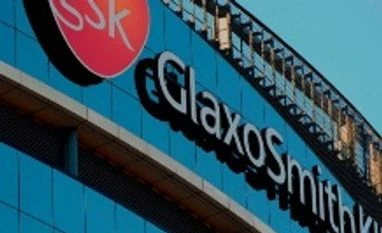The share price of GSK has risen by over 23% since the open offer was announced on December 13.
As seen in other cases when theshare price of the company with open offer shot up for a short period to surpass the price level at which the global parent company offers to acquire additional stake, investors expect the share price to hit Rs 3,100 apiece before the scheduled Friday closing of open offer. The open offer of GSK is underwayto acquire 20.6 million shares representing 24.3% stake of total outstanding shares.
More From This Section
The London listed parent of GSK - GlaxoSmithKline Plc -which holds currently 50.67% stake in the Indian company, is aiming toinvest Rs 6390 crore to acquire stake in Indian company at Rs 3,100 apiece. The open offer which began on February 18, will close on March 4.
The share price rise, however,has provided a good exit opportunity for investors looking at the disappointingfinancial performance of the company for the last two quarters.
"The offer by the parent company for GSK Pharma is attractively priced and investors should take this opportunity and tender their shares. The open offer comes at a time when the company's financial performance has shown a downfall on account of new pharmaceuticalpricing policy, rising competition, higher input cost and the rupeedepreciation," said Dinker Shanbhag, Head- Institutional Equities at LotusGlobal Equities.Consequently, analysts have intensified recommendations of "sell" since the open offer.
As against two recommendations for "sell" about 10 days ago, six out of 12 analysts havesuggested investors to exit from this stock. While four have revised theirrecommendations to "sell" now from "hold" earlier, other four overturned with"hold" from "buy". Foreign research firm Nomura inits report following the announcement of the fourth quarter result of GSKrecommended its investor to participate in the open offer.
"The companycontinued to face headwinds in the domestic market as sales recorded a plungeover the past three quarters," said the report. Domestic research firm AxisCapital too maintains its bearish stance on the stock and has recommended"sell" with a target price of Rs 1,783 apiece in short term.
According to DeepakKhetan, vice president, Life Sciences, Axis Capital, "The domestic formulationgrowth was impacted due to trade unrest and price cuts across the industry. But, the industry has started witnessing gradually recovery January 2014onwards. We believe growth rates would normalise in FY 2015."
A report from Axis Capital said that the new pricing policy and thrust on pure generic industry in few states would maintain pressure on growth and margin for GSK Pharma.On a standalone basis, GSK Pharmaposted 4% decline in its revenue in December quarter at Rs 630.63crore.
Operating profit of the company fell by a steep 40% in theDecember quarter to Rs 118.3 crore. With the revenue remained under pressure, employees and raw material costs continued to rise. Therefore, the company'smargins slipped from 30% in the year ago perod to 18.7% now.
The company has indicated thetrade issue with dealers, which as impacted sales since October. The issue has been resolved now. That apart, the company's major anti-bacterial brand, Augmentin, has come under price control which may affect its business goingforward. GSK's performance remainedunexciting in the last three years. Consequently, the stock moved in a closerange of Rs 1,850-2,400 apiece during this period.
Its recent performance alsoremained weak due to pressure on margins. As a result, analysts have cut itsearnings estimates going forward. A CLSA report expects GSK's margins to remain under pressure on impact of product price cut in subsequentquarters.
Macquariein its report said that the current offer price of Rs 3,100 is a good reflection of the long term fundamentals of the Indian pharma market. Given pricing policy overhang and margin pressure, Macquarie believes that the open offer price provides limited upside potential.
ALSO READ: GSK's open offer for buying stake in Indian arm from Feb 7-21
)